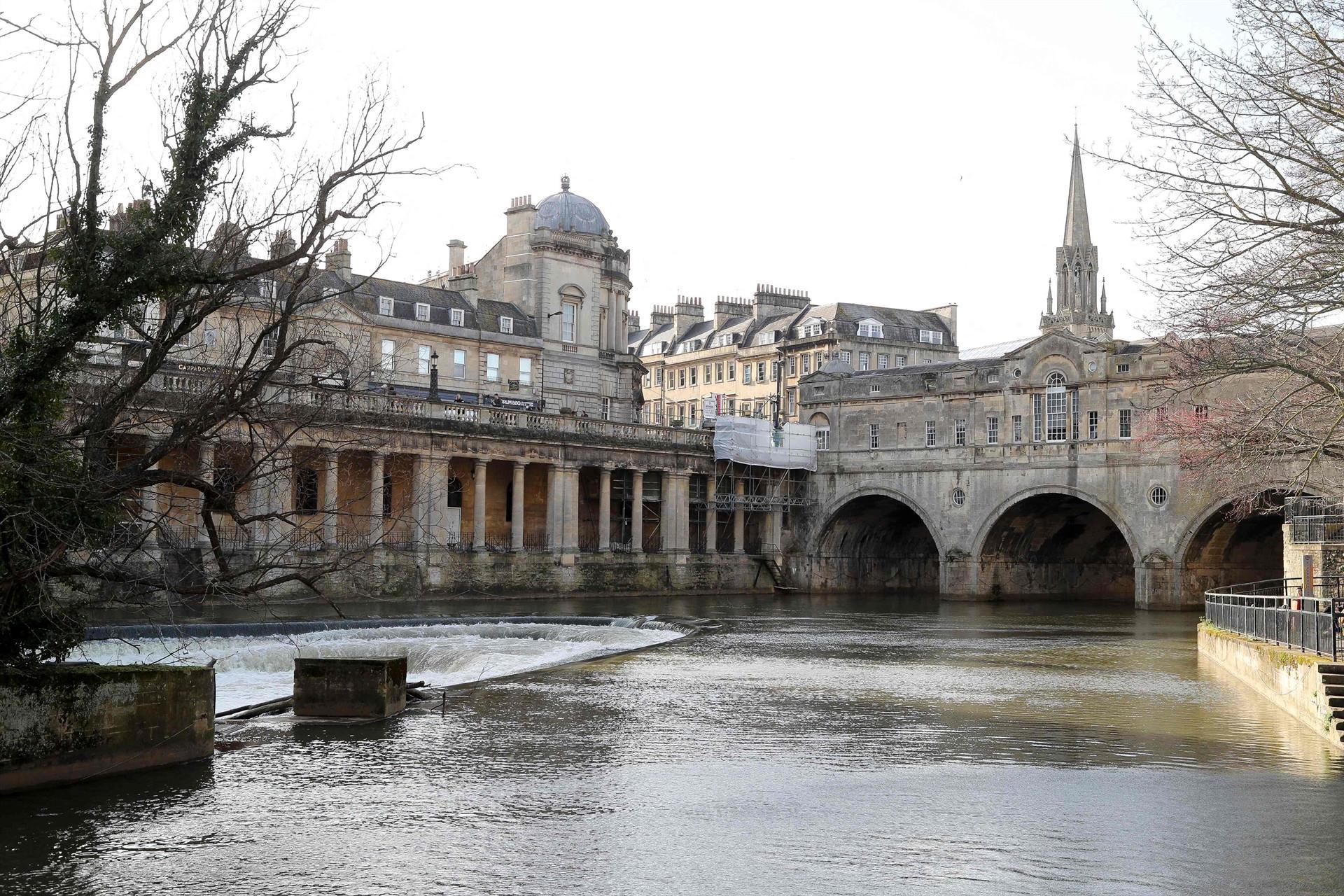
Famed as a spa town where the Romans soaked in the waters, the British city of Bath has long been a magnet for the health-conscious visitor.
But in the age of the car, nitrogen dioxide (NO2) levels, mainly caused by diesel and older petrol vehicles, regularly exceed legal limits.
The toxic emissions can trigger asthma attacks, a condition that affects about 12,000 people in the city in southwestern England and surrounding areas.
From midnight, however, under a new initiative, polluting cars will have to pay a daily charge of between £9 and £100 ($13-$139, 10-139 euros) to drive in the centre of Bath, with its Roman ruins and majestic neoclassical buildings.
The overhaul - the first of its kind in Britain outside of the capital London - is aimed at cutting health-threatening emissions.
Shop owner Michele Dicorato is one of those affected by the change.
He keeps his brand new ecologically-friendly white van parked near his business in front of the local market in the heart of the city.
The hardware store owner had not been looking for a new vehicle until he learned local officials were planning a new charge on the most polluting vehicles.
"If I’d had it my way, I wouldn’t have changed it... but I got good financial support," he told AFP of the new purchase, ahead of the levy coming into force on March 15.
Backed by government support, similar measures are on the way in Birmingham, central England, Bradford, in the north, and Bristol also in the southwest.
The U.K. government has been criticized in court - most recently in 2018 - over its consistent failure to cut illegal levels of pollution.
As the COP26 climate conference being hosted by Britain in November draws closer, the country has sought to put itself at the forefront of international efforts to confront the worsening situation.
It has pledged to go carbon neutral by 2050 ahead of the international conference, which is due to be held in the Scottish city of Glasgow.
Under the new initiative, the limits of the new pollution charge area - the "Clean Air Zone" - are shown on signs bearing a cloud on a green background. Cameras have been installed to track license plates.
"Even though we’ve been locked down for the last year, so lots of us have been at home and there’s been a lot less traffic, we know that there are still four sites within the city centre that are above legal levels of nitrogen dioxide," local councillor Sarah Warren said.
Private vehicles and motorcycles are exempt from the charge after a consultation showed the "public felt strongly that they were concerned about the impact on the most vulnerable," Warren said.
Taxi drivers, like Tim Elbehiry, were critical of the measures.
"It is not the right time to do that. We are struggling," the 49-year-old said, waiting for a hoped-for customer in the deserted city center with strict coronavirus lockdown rules still in place.
"We barely can get our heads above water," he added. "We don’t have enough business."
With a family to support, Elbehiry said he was lucky to avoid the charge. The black Mercedes he bought in 2015 is ineligible for the £9 levy on more polluting cabs.
The zone, which applies 24 hours a day and seven days a week rises to £100 (116 euros) for polluting buses, coaches and trucks.
Chris Ashley, head of policy, environment and regulation at the Road Haulage Association called the measures "blunt" and criticized them for "condemning vehicles that are only five, six or seven years old".
Despite subsidies to facilitate the purchase of cleaner vehicles, Ashley added members of his road haulage association were struggling to adapt due to a shortage of environmentally-friendly trucks.
But Imogen Martineau, the manager of the Clean Air Fund in the U.K., told AFP that low emission zones like Bath’s had been identified as "the fastest way of reducing nitrogen dioxide level within legal limits".
If Britain could reduce air pollution to the limits recommended by the World Health Organization, it would prevent 17,000 premature births each year, according to the fund, which raises awareness of air pollution worldwide.
Martineau added the positive impact for health was linked to improved economic outcomes.
"Three million working days are lost each year as a result of air pollution causing workers to become sick or taking time off to care for sick children," she said.